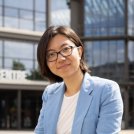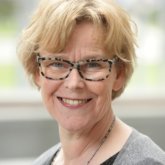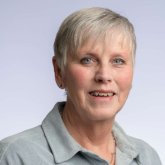PhD position on Physiological-Model-Based AI for the recovery monitoring of elderly after hip fracture surgery
Are you looking for a PhD Position within the SMARTTEST project at the EEMCS-BSS group? Apply now!
The BSS group within the Department of Electrical
Engineering has a vacancy for a PhD researcher on Integrated Sensing and Communication (ISAC) systems within the EU Horizon 2023 Marie Sklodowska-Curie Project SMARTTEST. This research is linked to Doctoral Candidate 8 – DC08.
A hip fracture in older adults is associated with complications and a high mortality rate of 10% within one month and 30% within one year after hip fracture surgery. It is therefore crucial to monitor patients’ health condition continuously and accurately after surgery to measure and evaluate patients’ recovery progress, and timely detect and even predict clinical adverse events like delirium, cardiac arrhythmias and pneumonia. In this project, the University of Twente (Biomedical Signals and Systems group) in collaboration with the top clinical hospital Ziekenhuisgroep Twente aims to develop such a health condition monitoring system to assist patients’ recovery management and ultimately reduce the complication and mortality rate and increase their quality of life after hip fracture surgery.
This PhD position will focus on the health monitoring system development mainly based on multimodal physiological signals, for instance, inertial measurement unit (IMU), electrocardiography (ECG), photoplethysmogram (PPG), Electrodermal activity (EDA), and contactless movement and physiology signals. Specifically, the PhD researcher will develop physiological-model-based artificial intelligence technologies to assess patients’ recovery process and detect or even predict the occurrence of clinical adverse events like delirium, cardiac arrhythmias and pneumonia among the elderly after hip fracture surgery. To obtain relevant data for the above described technology development and its feasibility test, the PhD candidate will also design a medical research experimental protocol for both a healthy control population and a target patient population, and apply for the protocol’s ethical approval. Please check this website for more information about the relevant ethical regulations and approval process in the Netherlands), and take main responsibilities for performing the approved experiment.
The prospective PhD candidate is expected to perform high quality and internationally visible research with publications in high rank peer-reviewed journals. The candidate will be affiliated to BSS-Ying Wang’s Research Lab and mainly (co-)supervised by dr. Ying Wang, prof. dr. Johannes H. Hegeman and prof. dr. ir. Peter H. Veltink at the Biomedical Signals and Systems group at the University of Twente. The candidate is also expected to closely collaborate with the other partners within the SMARTTEST project. The candidate will be appointed for a period of four years, at the end of which a PhD thesis needs to be delivered. During this period, the PhD candidate will be offered the opportunity to broaden their knowledge by joining MSCA SMARTTEST consortium meetings and by participating in (inter)national conferences and workshops.
Information and application
Are you interested in this position? Please send your application via the 'Apply now' button below before February 1, 2025, and include:
* A motivation letter (maximum 1.5-page A4), emphasizing your specific interest in this position, qualifications, skills and motivations to apply for this position;
* A full Curriculum Vitae, including a short summary of your previous research, the contact information of at least two references that may be consulted and, if applicable, a list of publications;
* Lists of courses and grades of your BSc and MSc degrees.
For more information regarding the position, you are welcome to contact Dr. Ying Wang via the following email address: ying.wang@utwente.nl or view the website of SMARTTEST
The first-round interview of the selected applicants is expected to take place at the end of February 2025.
About the department
BSS Biomedical Signals and Systems is a multidisciplinary group based in Electrical Engineering, focussing on finding solutions for medical challenges via signal and system analysis. Advanced (ambulatory) sensor technology combined with our broad knowledge of the human body as a dynamic system enables (eHealth) technology to improve prevention, diagnosis and treatment of sensory, motor and internal dysfunction in clinical and home/selfcare settings. Our research helps to improve the quality of life of the elderly, people with chronic diseases and rehabilitation patients. The research mission of the Biomedical Signals and Systems (BSS) group is to:
* enable improved diagnosis and treatment of patients with motor, sensory and cardiopulmonary dysfunction in clinical and home/self-care settings,
* by developing knowledge, methods and tools for identification, control and modulation of neural, muscular and cardiopulmonary systems, cognition and behaviour,
* using smart sensing, novel data analysis techniques and selective actuation technology or personalized eHealth technologies that enable prevention, timely diagnostics, and personalised coaching & treatment for chronic care and rehabilitation.
About the organisation
The faculty of Electrical Engineering, Mathematics and Computer Science (EEMCS) uses mathematics, electronics and computer technology to contribute to the development of Information and Communication Technology (ICT). With ICT present in almost every device and product we use nowadays, we embrace our role as contributors to a broad range of societal activities and as pioneers of tomorrow's digital society. As part of a people-first tech university that aims to shape society, individuals and connections, our faculty works together intensively with industrial partners and researchers in the Netherlands and abroad, and conducts extensive research for external commissioning parties and funders. Our research has a high profile both in the Netherlands and internationally. It has been accommodated in three multidisciplinary UT research institutes: Mesa+ Institute, TechMed Centre and Digital Society Institute.





